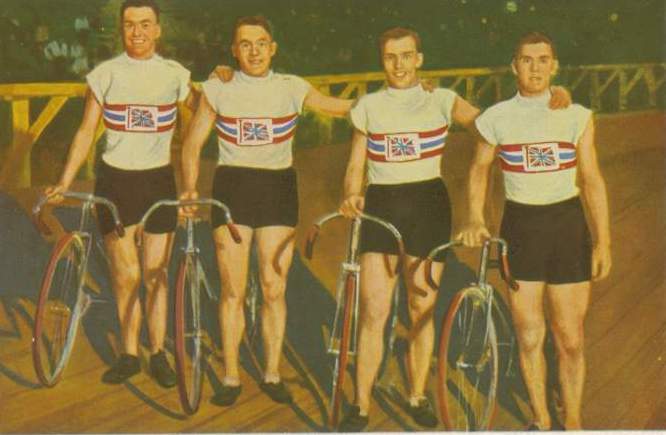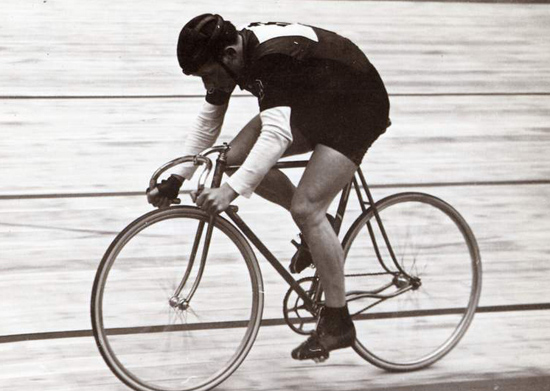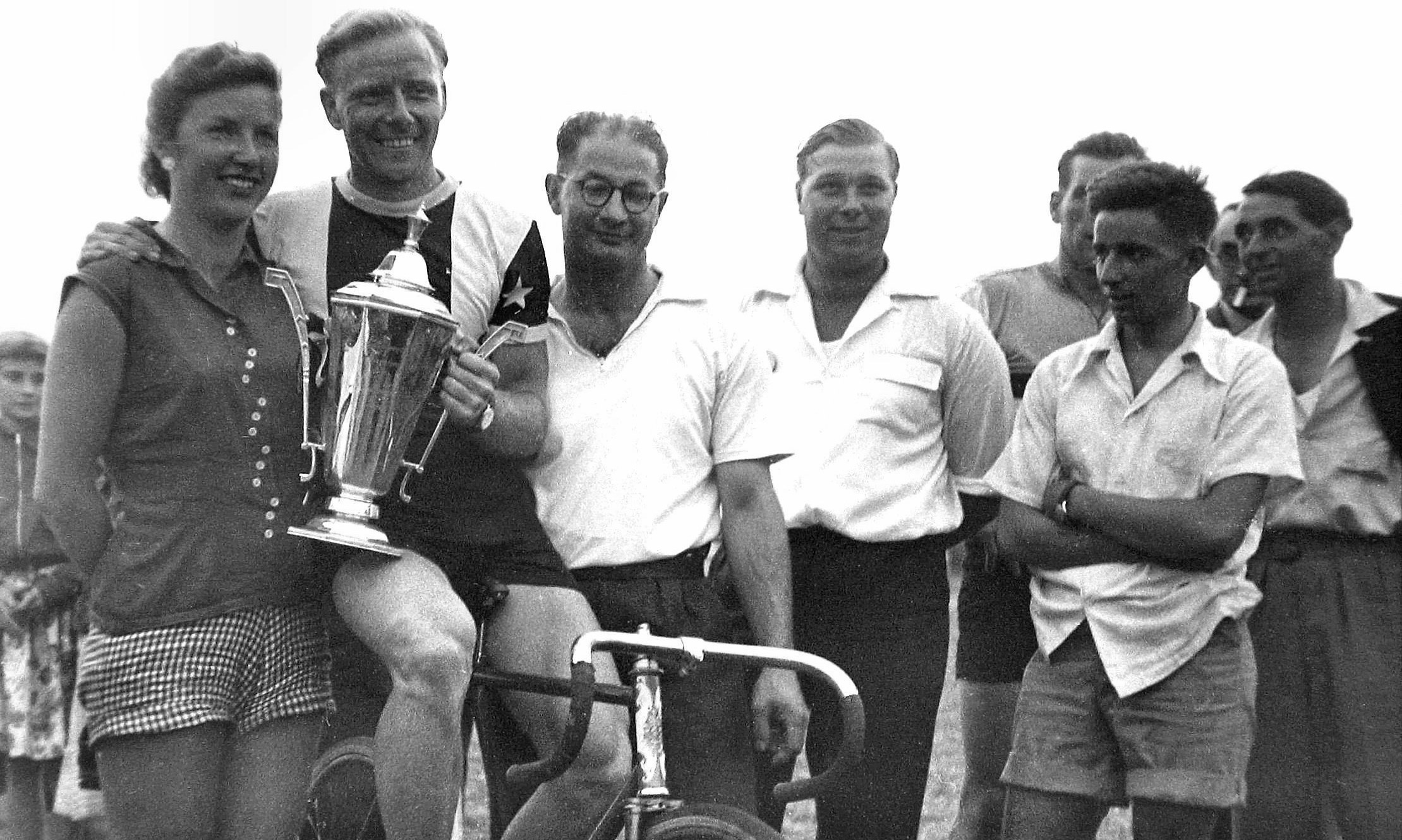An appreciation of Bill Harvell
Posted: Sunday 23rd August 2020
I first met Bill Harvell in 1944 when I was thirteen, a schoolboy newly returned from wartime evacuation to a war-ravaged Portsmouth. My brothers were keen cyclists and suggested that I should visit his small but colourful cycle shop at Hilsea. I soon learned of Bill’s outstanding career as a British cyclist, he had represented our country at the 1932 Olympic Games in Los Angeles (image below) and in the Empire Games at Manchester in 1934, winning bronze medals at each. Despite the considerable gap in our ages we became friends and throughout my life I have treasured that friendship and held him in high esteem.

Bill’s obituary in the cycling press said that “He encouraged countless youngsters who came into the sport after the war”. I was lucky to be one of them. He was a warm, interesting and welcoming man who greatly added to my appreciation of life. The son of poor Dorset parents, Bill’s early years had been a constant financial struggle. Despite the challenge he quickly reached the top in British cycling but he remained modest and unpretentious.
In the 1930s Bill time trialled and raced with Freddie Prince, who went on to found Rotrax Cycles in 1945. Bill had shops in Poole and Southampton, he would cycle between the shops, which later became part of the Rotrax business.
Bill’s shop at Hilsea was a mecca for southern cyclists and was often full of enthusiasts listening to his well-told tales. I got to know all of these stories and from afar could tell from his gestures which epic he was describing. Perhaps the best was about an Isle of Man race which he managed to finish on a bike seriously wrecked by collision with the sandbags at Craig na Baa. His audience sometimes included sailors from the Free French Navy at Portsmouth. Bill spoke no French and used me as a translator in my schoolboy French. What a challenge!
Several of us lads worked for Bill in the late 1940s on Saturdays and during school holidays. He paid no wages but allowed generous access to his dump of smashed bikes and equipment. He was a good wheel builder and competent mechanic. In those days there was a huge shortage of cycling gear. What was available was mostly pre-war, second-hand and beyond our means. With the aid of 1930s French catalogues some of us constructed workable Simplex gears from bits and pieces. We also salvaged chainsets with odd cranks, handlebar stems and seat pillars. I found a pair of Jack Sibbit track bars which even then looked very obsolete!
When we started racing at the age of 14 there were plenty of events at Southampton, Gosport and Portsmouth tracks. There were time trials at various distances on local courses and an occasional massed start race on what became the Goodwood motor circuit. In winter there were indoor roller competitions and even a race between runners and cyclists over a tough cross-country course on Portsdown Hill. Bill was usually at track events and sometimes provided us with an old tandem which helped to liven the pace in training sessions at Alexandra Park. Few of us could afford track bikes so we rode on stripped-down road machines. On one occasion officials refused to let me take part because removal of my derailleur had left about an inch of spindle protruding beyond the track nut. Bill came to the rescue with a hacksaw and offered to tidy up the projection. This pacified the officials but left me protesting at the cost of a new spindle. Smiling through gritted teeth Bill urged me to stop whining and to get on with the race but he finally offered to pay for a new item.

After the 1948 Olympics Portsmouth staged a major track meeting which attracted an international field. Bill was concerned that I had not entered. Fees, though modest, were a problem but he persuaded me to complete the forms and undertook to send them on to the promotors. I shall never know if he exerted any influence but I was astonished to find myself in the same heat of the Half Mile Handicap as Reg Harris, then reigning world sprint champion.
Bill had a keen sense of humour and a wealth of earthy sayings. I think he nursed a bit of a grievance against the 1920s Dorset squirearchy and he often mocked people he regarded as chinless upper-class twits. He had a hilarious story about young naval officers complaining at wartime sugar rationing. We cultivated posh-speak accents to re-enact this saga.
National Service in 1949 took me away from Portsmouth and afterwards my Civil Service job moved me to various parts of the UK. Marriage and rearing a family ended any dreams of racing but in the 1960s we returned to Portsmouth on a brief visit. The Hilsea shop was still there but looked empty. From a back room came the unmistakable sound of wheel building. I raised my voice and called out “Is there no bloody shugah in this shop?” The noise stopped and an ageing Bill Harvell ran into the shop crying “Roger! It’s got to be Roger!” An animated session of nostalgia ensued but it was the last time I saw my old friend.
Years later my brother informed me that Bill had died in his sleep, a great way for such a wonderful guy to go. Over our years of friendship Bill had talked of the many people he knew, including Toni Merkens, German track champion of handlebar stem fame, who had died on the Russian Front. I believe that at one stage they had been Madison partners.
Posted: Sunday 23rd August 2020
Contents
This article appears in the following categories.
Upcoming Events
Whether you are looking for a gentle social meet up, or a 100-mile ride browse the community’s upcoming events and plan your next weekend outing.
